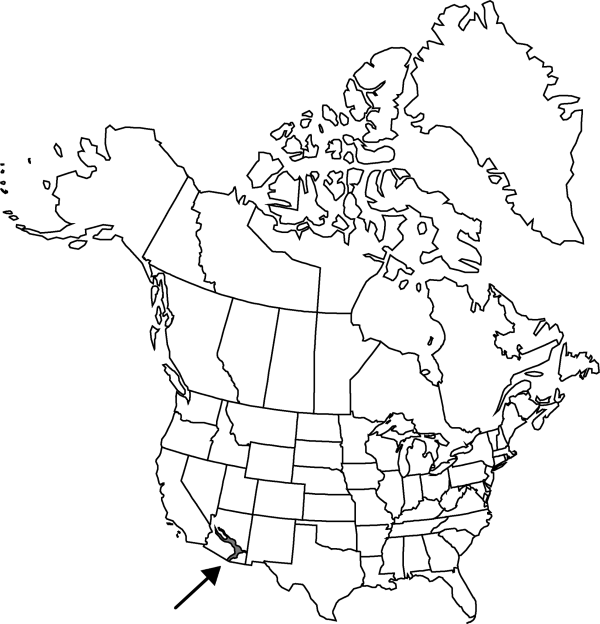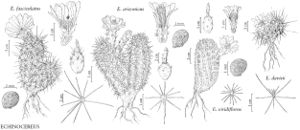Echinocereus fasciculatus
Cacti Arizona ed. 3, 21. 1969.
Plants 5–30-branched, forming somewhat open clumps. Stems mostly erect, cylindric, (5–) 10–40 × 4.5–8 cm; ribs 10–15, crests slightly undulate; areoles 10–15 mm apart. Spines 8–16 per areole, usually straight, individual spines with broad zones of different colors: yellowish, reddish-brown, or gray to black, or white to black, becoming gray; radial spines 7–15 per areole, 5–15 mm; central spines 1–3 per areole, divergent-porrect, 15–75 mm, all terete. Flowers 6–10 × 8–10 cm; flower tube 10–20 × 15–40 mm; flower tube hairs 2.3–4 mm; inner tepals rose-pink to magenta [rarely nearly white], with midstripes darker, darker magenta or sometimes purplish maroon near base, (20–) 35–52 × 12–20 mm, tips relatively thin and delicate; anthers yellow; nectar chamber 3.3–5 mm. Fruits bright red or orange-red, 20–30 mm, pulp white or sometimes pink. 2n = 44.
Phenology: Flowering Mar–Jun; fruiting May–Jul.
Habitat: Sonoran Desert, flats to steep canyonsides, desert scrub, semidesert grasslands, interior chaparral
Elevation: [30-]600-1000(-1500) m
Distribution

Ariz., Mexico (Sonora)
Discussion
New Mexico records of Echinocereus fasciculatus are at least in part based on vigorous old plants of E. fendleri, which sometimes have 1–2 short supplementary central spines (and which appear very different from younger plants in the same populations). Echinocereus fasciculatus may prove to intergrade clinally with E. engelmannii var. acicularis wherever their geographic ranges approach each other. At its upper altitudinal limit, E. fasciculatus tends to have shorter spines, fewer central spines, shorter stems, and more compact growth habit.
Selected References
None.
Lower Taxa
"thin" is not a number.
